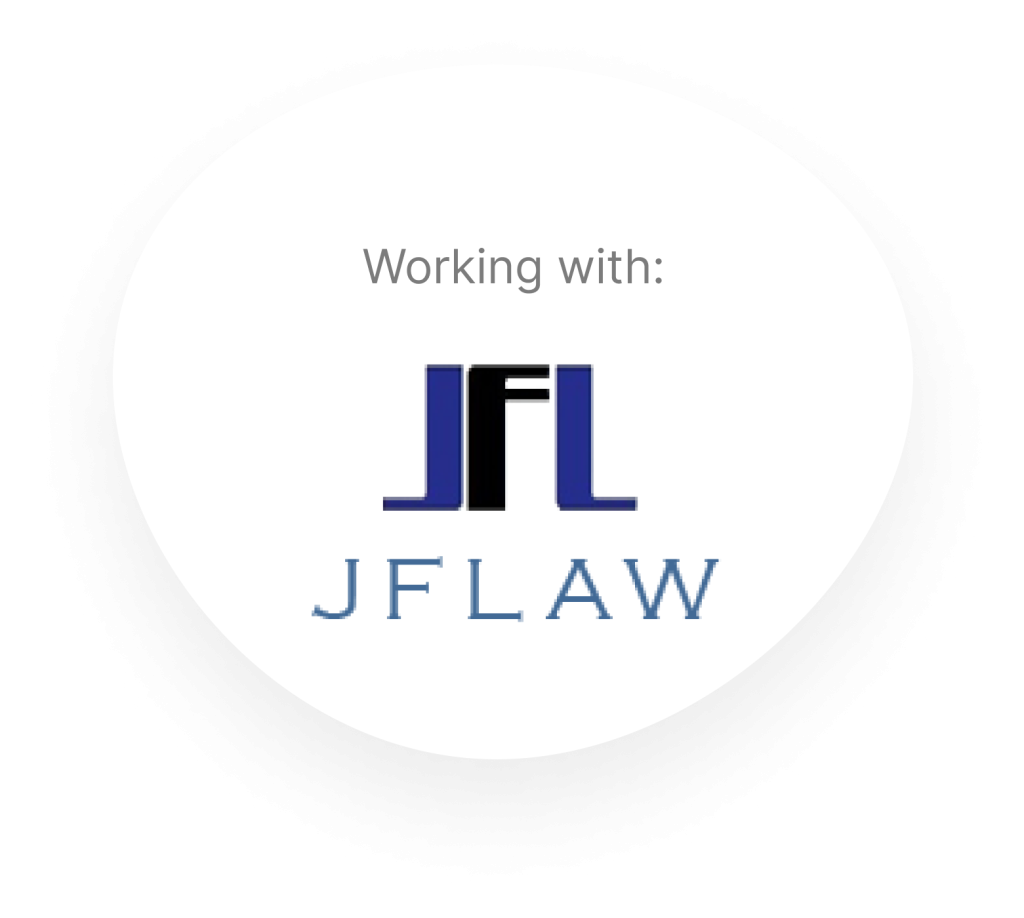Head Injury Claims
No-win, No-fee claims
If you’ve been injured in an accident that occurred because someone who had a duty of care towards you breached this duty, you may be able to claim compensation for your suffering.
Excellent Reviews On

Learn About Head Injury Claims
Advice On Head Injury Claims
If you’ve been involved in an accident and sustained a head or brain injury, our solicitors could help with head injury claims.
Excellent Reviews On
As featured in:




Head injury claims involve some of the most severe injuries a person can sustain. Even a minor concussion could pose a serious risk to your health if not properly treated. Our guide aims to explain when and how you could make a claim for a head or brain injury.
We have provided guidance on the duties of care owed by third parties in various situations, with some example scenarios of how an accident may occur if each of these duties is breached. You will also see information on how to get started with a personal injury claim and what support and guidance we can provide.
Compensation in personal injury claims can be awarded under two different heads of loss. We have explained how payouts are calculated under both of these, with a compensation table to aid your understanding.
Our final section examines the No Win No Fee contract offered by our highly experienced solicitors, and what benefits you can enjoy when you instruct a legal representative under such a contract
We appreciate that this guide is long and contains a lot of information. If you have questions, want more details or would like a free assessment of your eligibility to claim, contact our advisory team using the details provided here:
-
Call us on 0333 091 8598
-
You can also contact us using our callback form.
-
Click the live chat window on your screen.



What Are Head Injury Claims?
In general terms, head injury claims can be made after an accident is caused by a third party failing to uphold their duty of care, resulting in an injury. We have highlighted a few different examples of accidents where head injuries have been sustained due to a third party failing to uphold their duty of care.
Road Accidents
Road users have a duty of care to each other. What this means is that anyone using the roads must do everything they can to avoid causing harm to other road users. This means abiding by the standards set out by the Road Traffic Act 1988 and the Highway Code.
An example of a driver failing to uphold their duty of care and causing a road traffic accident could be:
A van driver reverses out of a driveway without checking their blind spot. You were cycling along the road when the van pulled out in front of you. You collide with the van and suffer a serious head injury as well as multiple fractures to your arms and legs.
Accidents at Work
All employers owe a duty of care to their employees. The Health and Safety At Work etc. Act 1974, requires them to take reasonable steps to ensure the safety of their workers. How this duty is upheld can vary greatly depending on the work being carried out.
The Health and Safety Executive (HSE) is Britain’s regulatory body for workplace health and safety. They publish various guidance on how to conduct risk assessments and provide proper training to help employers ensure that everything reasonably practical has been done to avoid accidents at work.
An example of how you may be injured due to your employer not maintaining their duty of care includes:
You and your fellow employees were not given the correct protective headgear at a power station. Workers installing some new cables on a catwalk above you dropped a reel of heavy cable. You were hit by the falling object and suffered a fracture to your skull.
Public Accidents
The party in control of a public place, referred to as an occupier, must take steps to ensure the reasonable safety of all visitors who are using the premises for its intended purpose. This duty is set out by the Occupiers’ Liability Act 1957.
An example of how you may be injured due a breach in this duty of care includes:
The top of a stairway in a leisure centre was broken. Despite being informed of the significant health and safety risk, building management had neither placed a warning sign or organised a repair. While heading down to the ground floor, you trip and fall on the broken step, sustaining a severe concussion.
Head injury claims can be made after various accidents, not just the examples we have given here. To find out if you could claim in your particular circumstances, contact our advisory team today.
Why use us?
Free Consultation
We offer a free consultation to anyone looking to make a claim
No win, no fee
Claim experts
We use solicitors who have handled thousands of claims

How Are Head Or Brain Injuries Caused?
A head or brain injury can be caused in a number of different ways. While we provided an example with each duty of care, we want to go into a little more detail in this section.
Scenarios where head injury claims could be made following an accident include:
-
Not being given adequate training or supervision by your employer.
-
Warming signs for wet floors or other trip hazards not being posted.
-
Drunk or drug drivers colliding with your vehicle.
-
Failures to properly carry out maintenance checks on safety rails or barriers.
To find out if you could be eligible to make a head or brain injury claim in your particular circumstances, contact our advisory team using the details given above.
How Do You Start A Head Injury Compensation Claim?
The first step after any accident is to get the proper medical attention. You should also report the accident to the relevant third party. This will either be informing your employer, the occupier or exchanging insurance details with another driver.
If you call us to get an assessment of your eligibility to claim, we will ask you for some additional information. This is to help us provide the best possible advice and determine whether or not your claim is valid.
The following questions may be asked:
-
What type of injuries have you suffered, and what treatment was provided for them?
-
To provide details of the accident: where it happened, how it occurred, when did this accident take place?
-
Do you have any supporting evidence already to hand? Such as, police reports, medical documents, copies of the workplace accident book, photographs or video footage.
-
What impacts have these injuries had on your ability to work, engage in social activity and your finances?
Use the contact information provided above to talk to one of our advisors. In addition to providing free legal advice, our team can assess your eligibility to claim free of charge.
How Much Compensation For A Brain Or Head Injury?
There are two heads of loss that may be awarded for successful head injury claims. These are:
-
General Damages: compensation for the pain and suffering caused by your injury.
-
Special Damages: compensation for monetary losses caused by your injury.
Calculating compensation figures is not something you will need to do yourself. This is one of the many tasks one of our solicitors could help you with. The team assigned this responsibility can refer to your medical documents alongside the compensation figures in the Judicial College Guidelines (JCG).
Compensation Calculator
The JCG publication contains compensation guidelines and detailed descriptions for several different injuries at varying severities. The compensation calculator below uses these guidelines to help calculate your general damages.
Compensation Bracket: 0.00
Special Damages In Head Injury Claims
As we touched on above, you could receive compensation for the financial losses your injury has caused you to experience.
Under special damages, you could receive compensation for:
A loss of earnings.
Care costs.
Travel expenses.
The costs of medical treatment.
Evidence of your financial losses will be required when making your head or brain injury compensation claim for special damages. This may include wage slips, invoices and receipts.
If you have any questions about how personal injury compensation is calculated or want a free assessment of your eligibility to claim, speak to our advisors.
Can You Claim For A Head Or Brain Injury On Behalf Of Someone Else?
Generally, when making a personal injury claim for yourself, you will have 3 years to start proceedings, as stated within the Limitation Act 1980. However, exceptions to this time limit are made for those with reduced mental capacity or are under the age of 18. In these instances, you may be able to make a claim on their behalf.
The exceptions to these time limits are as follows:
-
Children: if the injured person is under 18, the time limit is frozen until the date of their 18th birthday. From this date, the 3-year time limit will apply.
-
Those of reduced mental capacity: If the injured person has reduced mental capacity and is unable to manage their own claim, the time limit is frozen indefinitely. It will only be reinstated if they were to regain this mental capability and in this instance, the time limit would then run from the date of recovery.
In these situations where the time limit is frozen, you could apply to act as their litigation friend. Litigation friends are someone who will act in the claimants’ best interest, such as a guardian, parent or solicitor, for example.
To learn more about the time limit in personal injury claims, or to find out if any exceptions are relevant in your particular case, contact our team today.
How Long Do Head Injury Claims Take?
How long head injury claims will take to complete will be affected by various factors since each claim is unique. Some of the factors that may influence how long a claim will take to be completed include:
-
Whether or not the third party accepts liability.
-
How long acquiring the necessary evidence takes.
-
How severe your injury is and what your expected recovery period will be.
One of our solicitors could help guide you through the claiming process, keeping you informed of its progress and negotiating a settlement on your behalf. To find out if you are eligible to work with one of them, or to ask any questions about the head or brain injury claims process, talk to our advisors today.
How Can We Help You Claim Head Injury Compensation?
Our advisory team has considerable experience in assessing head injury claims. If eligible to claim, they may connect you with one of our solicitors who could offer to work on your case under a Conditional Fee Agreement (CFA).
CFA’s give claimants some very desirable benefits, including:
-
Not having to pay any initial fees for the solicitor to start work on the claim, in most cases.
-
There will also be no fees for that work during the actual claim.
-
Finally, should the claim fail, you will not owe any fees for the services your solicitor has provided.
If they win your claim, a success fee will be deducted from your compensation award. Success fees are capped by the law, so you get to keep the most of any compensation you receive.
If you have questions, want more details or would like a free eligibility assessment of your potential head injury claim, contact our advisory team using the details provided here:
-
Call us on 0333 091 8598
-
You can also contact us using our callback form.
-
Click the live chat window on your screen.
Read More About Making Personal Injury Claims
We have included some external resources here for additional information:
- Read the Government guidance on claiming Statutory Sick Pay following an accident.
- Find out more about head injuries on the NHS website.
- See the HSE resources on personal protective equipment here.
Thank you for reading our guide on head injury claims. For more guidance or to find out if you could be eligible to begin a claim, speak to our advisors today.


